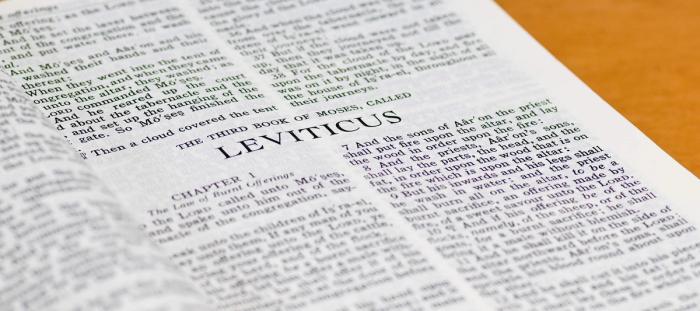Years ago, when a gunman killed several people in an attempt to assassinate Arizona Congresswoman Gabrielle Giffords, people blamed political parties, educational institutions, the media, video games, or mental health. Finally, an exasperated columnist for Politico named Roger Simon cried out, “Why is no one mentioning evil?” Though an avowed atheist, Simon wanted people to go back to this religious term. He concluded that we avoid the concept of evil because it would indict us all.
Christians—like the rest of culture—have become polarized about how to pursue justice. If you’re outspoken about perceived justice issues, you’re called “woke.” If you grumble about all the public virtue signaling, you might be suspected of extremism. Add onto all this that some people increasingly view Christians as enemies of justice, and you see how dicey this issue has become. Here are a few things to remember amidst the confusion and clamor of culture:
1. Only the Bible can explain the existence of injustice.
Our God is a God of justice: “The Rock, his work is perfect, for all his ways are justice. A God of faithfulness and without iniquity, just and upright is he.” (Deut. 32:4) He created this world without flaw and in perfect order. He brings about justice in this world and requires His people to do the same:
For the Lord your God is God of gods and Lord of lords, the great, the mighty, and the awesome God, who is not partial and takes no bribe. He executes justice for the fatherless and the widow, and loves the sojourner, giving him food and clothing. Love the sojourner, therefore, for you were sojourners in the land of Egypt.
—Deut. 10:17-19
There is injustice in this world because of sin. After sin is introduced into the world in Genesis 3, Cain unjustly takes the life of his brother, Abel, in Genesis 4. God hears the blood of innocent Abel crying out to him from the ground and meets out justice upon Cain by cursing him to be a “wanderer upon the earth.” (Gen. 4:10-12) God clearly cares about injustice, and injustice comes with consequences.
Cain cries out that this punishment is more than he can bear. Why? He will be wandering through a world of unjust people like himself. Whoever finds him will kill him. (vv13-14) At this point, God promises Cain justice in this wilderness world. The Lord promises that “anyone who kills Cain will suffer vengeance seven times over” and puts a mark on him as a symbol of this promise of justice (v15). In other words, God will maintain some semblance of order and justice in this world. It won’t all be the wild, wild west.
Soon after, Cain creates a city and names it after his son. Later, one of Cain’s descendants, Lamech, turns God’s justice on its head:
Lamech said to his wives: “Adah and Zillah, hear my voice; you wives of Lamech, listen to what I say: I have killed a man for wounding me, a young man for striking me. If Cain’s revenge is sevenfold, then Lamech’s is seventy-sevenfold.’”
—Gen. 4:23-24 (italics mine)
The problem here is not that a man suffered consequences for an evil act, but that he exceeds the complete, seven-fold justice of God (seven often connotes completeness in scripture) and vastly exceeds what is just by killing the man. This is not an eye for an eye—it is a head for an eye. In the process of his unjust act, Lamech is declaring his authority to be above that of God. Evil should be punished by just governments, but excessive punishments distort God’s justice. As we’re often told in American culture, “the punishment should fit the crime.”
The Bible shows us that sin is the root cause of injustice. It has severed humanity’s relationship to the Lord, and it has severed man’s relationship to his fellow man. Our natural inclination is to cry out, “Am I my brother’s keeper?” (Gen. 4:9). Power in relation to our fellow man just injects steroids into this problem of sin. There is truth in the observation: “Power corrupts. Absolute power corrupts absolutely.”
2. Only the Bible can explain to us the importance of justice.
Many people misunderstand the foundations of justice. They will tell you that we should care for the weak and vulnerable rather than exploit them, but they cannot tell you why. While the zeal is admirable, the explanation is quite important. Without understanding why justice is important, we will be selective in our application of justice. We will cry out for the unborn, but not the impoverished. We will cry out for persecuted or neglected peoples, but not the elderly.
Justice is important because all people are created in the image of God (Gen. 1:26–28). Every person in this world has God-ordained value and when we unnecessarily spill blood, it will cry up from the ground against us (Gen. 4:10). Injustice is as universal as sin because we all—Christians included—fail to love our neighbor as ourselves. This fact should humble us, and Christians should be at the forefront of those seeking justice for their neighbors. To do this, we don’t simply seek a better application of justice by our government, but we take responsibility for our own failures with the people around us and seek to remedy them.
If we take sin seriously as Christians, we must recognize we have blind spots. We are all inclined to show partiality (James 2:1–4), which means that we must be ready to address our individual injustices. Each Christian’s pursuit of justice will be unique.
We also recognize that caring about justice does not require a particular approach. We must exercise wisdom. And if working for justice in our society requires wisdom, we should also be gracious toward those whose wisdom guides them in different directions.
3. Only the Bible gives us hope in the quest for justice.
Though we ought to strive for justice in our societies, Christians can be humbled and comforted by the reminder that perfect justice is not something that God has promised us in this fallen world. The Lord, in his sobering wisdom, has permitted the existence of slavery, persecution, and genocide throughout human history—all evil. He does not promise us perfect justice on this side of glory, but he has given us a perfect savior.
God hears the blood of Abel crying up from the ground (Gen. 4:10) and will bring about justice once and for all. As perpetrators of injustice ourselves, that would be terrifying news, but God sent his only and beloved son into our world to bear the injustice of the cross for our sake. And his blood speaks a better word than the blood of Abel (Heb. 12:24). The Lord will not only come in judgment but has borne judgment on our behalf.
This knowledge humbles our pursuit of justice, knowing that only God can and will right every wrong, but it also empowers our pursuit of justice. Because Jesus reversed Cain’s cry by declaring himself to be his brother’s keeper, we are fueled to take responsibility for our brothers and the strangers within our midst as well. We cry out for the persecuted; we protect the man being beaten; we guard the life of the innocent. We do these things because the shadow of Cain’s sin no longer rules our own hearts. They belong to Jesus.
As a result, we can grieve injustice and yet maintain our hope. God will not only answer the cry for intervention in the future but has answered it definitively in the past. He will right all wrongs. He will wipe every tear from our eyes and sin will be no more.






